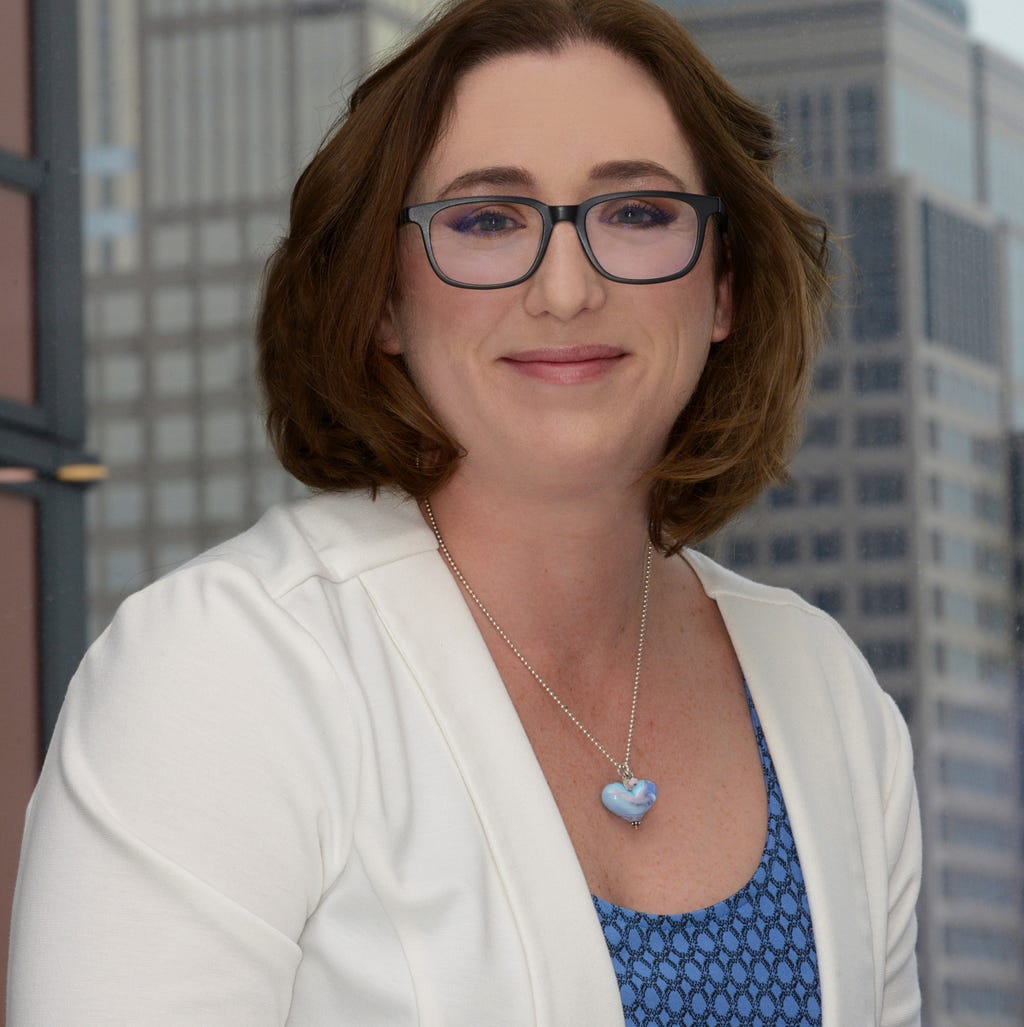Rachel Bradley of Mindset Solutions Counselling On How To Support A Loved One Who Is Struggling With An Eating Disorder

See them as a whole and not their eating disorder. Feeling normal in a sea of shame and isolation can go a long way to helping a person take back control of their eating disorder. Encouraging them to pursue activities and relationships that bring them joy and fulfillment can also aid in their recovery process, reminding them of their inherent worth beyond their disorder.
Eating disorders are complex mental health conditions that affect millions worldwide, transcending age, gender, and cultural boundaries. They are not simply about food but involve a range of psychological, physical, and social issues. Supporting a loved one through this struggle can be challenging, requiring understanding, patience, and knowledge of the right approaches to truly make a difference.
In this series, we aim to shed light on the most effective ways to offer support, understanding, and hope to those battling an eating disorder. We are talking to psychologists, nutritionists, doctors, therapists, and survivors, who can provide valuable perspectives on nurturing recovery, fostering resilience, and promoting healthy relationships with food and body image. As a part of this series, we had the pleasure of interviewing Rachel Bradley BSc MA CCC.
Rachel Bradley’s private practice, Mindset Solutions Counselling, specializes in teen and adult individual counselling, focusing on individuals struggling with eating disorders, body image challenges, and navigating life changes. Rachel employs a biopsychosocial perspective, integrating solutions-focused, emotion-focused, and person-centred therapy approaches.
As a Canadian Certified Counsellor (CCC) with the CCPA, Rachel holds a Master’s in Counseling Psychology and a Bachelor’s in Life Sciences. She recognizes that mental health is an integral part of everyone’s life, often overlooked in self-care practices. Rachel strives to create a safe and supportive environment for her clients, whether they need to unload the burdens of their day or seek strategies for a brighter tomorrow.
In addition to her counselling practice, Rachel is an accomplished academic writer, passionately dedicated to expanding her understanding and contributing to the global knowledge of psychology.
Thank you so much for joining us in this interview series. Before we dive into our discussion, our readers would love to “get to know you” a bit better. Can you share with us the backstory about what brought you to your specific career path?
My journey into the healing profession began as someone who has experienced many of the life challenges that countless individuals struggle with today, particularly depression. Initially educated in the field of science, specifically microbiology, I spent a considerable amount of time in the industry. However, I reached a point where I knew it was time for a change — a shift towards what I truly believe is my life’s purpose: giving back and helping people live their best lives, however, they define it.
Deciding to pursue my master’s degree while being a single parent to three young children was a daunting decision, but one that I made wholeheartedly. It has been quite the journey, filled with its own set of challenges and triumphs.
Can you please give us your favorite “Life Lesson Quote”? Can you share how that was relevant to you in your life?
While not necessarily a traditional life lesson, a quote that has resonated with me throughout my life is, “If you don’t ask, you don’t get.” This saying holds particular relevance because our perceptions and moods at certain points in life can sometimes inhibit us. So, I’ve always believed in pushing past those barriers by simply asking for what I want — because the worst that can happen is receiving a “no” in response.
Are you working on any exciting new projects now? How do you think that will help people?
I am constantly engaged in self-improvement, whether through further education or skill-building endeavors. One area that has recently captured my interest is the apparent shortage of support groups for individuals with eating disorders. It’s disheartening to see many people suffer in silence, often delaying seeking help until their disorder significantly affects multiple aspects of their lives.
I believe that establishing support groups or organizing pop-up events within local communities and schools could play a crucial role in reducing the stigma surrounding eating disorders and providing individuals with much-needed help and support. As part of my commitment to this cause, I am actively working on a plan to present at local schools in the upcoming school year.
According to this study cited by the National Association of Anorexia Nervosa and Associated Disorders, at least 30 million people in the U.S. of all ages and genders suffer from an eating disorder. Can you suggest 3–5 reasons why this has become such a critical issue recently?
I wouldn’t classify the issue as recent or critical; rather, it’s been prevalent in society for generations. However, there may be various factors contributing to its increasing visibility now. Eating disorders, like many other conditions, are multifaceted, with triggers and influences varying greatly from person to person. In today’s modern, technologically driven society, several factors may exacerbate the prevalence of eating disorders.
The societal shift towards a technologically driven culture has introduced new pressures and expectations regarding beauty and health. The pervasive influence of social media bombards individuals with idealized images of beauty, leading even the most self-assured individuals to question their appearance. The prevalence of image-altering filters further distorts perceptions of beauty and can contribute to body dissatisfaction. Additionally, social media platforms facilitate the spread of diet culture ideologies, promoting restrictive eating habits, celebrity-endorsed detoxes, and glamorizing unhealthy body standards. The ease of access to misinformation perpetuates the normalization of unhealthy relationships with food and body image.
Based on your insight, what concrete steps can a) individuals, b) corporations, c) communities and d) leaders do to address the core issues that are leading to this problem?
From an individual perspective, digital literacy around social media and internet usage, coupled with the ability to discern misinformation, can serve as a protective factor against the development of eating disorders. Building confidence to seek help from peers, friends, family members, or professionals is also crucial in preventing and addressing these issues.
At a corporate level, there should be widespread dissemination of information akin to the importance of wearing a seatbelt, aimed at helping individuals recognize warning signs of eating disorders before they escalate into diagnosable conditions. Corporations, especially those operating social media platforms frequently accessed by vulnerable populations, should be held accountable for the content they allow. Implementing safeguards can help remove misinformation and harmful content.
Communities are diverse but share common institutions such as schools, healthcare clinics, religious or spiritual centers, and culturally significant spaces. By fostering inclusive activities that make individuals feel supported, seen, and valued, communities can play a vital role in assisting those struggling with disordered eating.
At the leadership or government level, more resources and research must be allocated to ensure low wait times for treatment, with comprehensive care plans incentivized and streamlined for those in need. This approach should extend beyond the individual to encompass their family and broader communities, recognizing the interconnectedness of support systems.
As you know, one of the challenges of an eating disorder is the harmful, and dismissive sentiment of “Why can’t you just control yourself”. What do you think needs to be done to make it apparent that an eating disorder is an illness just like heart disease or schizophrenia?
Education, education and education. There needs to be a societal shift in people’s perceptions of eating disorders. This starts with education. If people are unaware of the severity of eating disorders and the far-reaching impacts these disorders can have on the individual, families and communities they may be more inclined to change such derogatory comments. Educating people about the complexities of eating disorders can help dispel misconceptions and reduce stigma, leading to more compassionate and supportive attitudes. Ultimately, a well-informed society is better equipped to recognize the signs of eating disorders, offer appropriate support, and advocate for improved resources and treatment options.

Can you please share with our readers 5 ways to support a loved one who is struggling with an eating disorder? If you can, can you share an example from your own experience?
1 . Listen! It is not about you trying to fix someone, they need to be seen and heard.
2 . Do not chastise them if and when they fall back into habits. Similar to addiction, recovery from an eating disorder often involves numerous relapses before achieving lasting change.
3 . Support the individual by adjusting the physical and social environment so that they feel seen and supported as they navigate change and recovery.
4 . Build their resources: this can include involving other people in the family, friends and community resources, such as peer support groups and counselling. Individuals can feel less isolated and more empowered to navigate their challenges. Peer support groups specifically offer a sense of belonging and understanding from others who have experienced similar struggles, reducing feelings of shame and isolation.
5 . See them as a whole and not their eating disorder. Feeling normal in a sea of shame and isolation can go a long way to helping a person take back control of their eating disorder. Encouraging them to pursue activities and relationships that bring them joy and fulfillment can also aid in their recovery process, reminding them of their inherent worth beyond their disorder.
How do you navigate the balance between offering support and respecting the autonomy of a loved one with an eating disorder?
The balance between autonomy and ensuring their well-being varies depending on where they are in their recovery journey and their current health status. In the early stages of seeking help or recognizing the severity of their disorder, supporting their autonomy is paramount. Encouraging them to make decisions about their care and providing them with resources and support can empower them to take steps toward recovery. However, if their disorder has progressed to the point where their health and safety are at risk, it may be necessary to intervene more assertively. In such cases, limitations on autonomy may be implemented to ensure their immediate well-being, while still supporting them and involving them in decisions about their care whenever possible. Ultimately, the goal is to strike a balance between respecting their autonomy and ensuring their safety, with the overarching aim of supporting their recovery journey most effectively and compassionately possible.
Is there a message you would like to tell someone who may be reading this, who is currently struggling with an eating disorder?
You are much more than your eating disorder. Reaching out for support and increasing your resources can empower you to take back control and live the fulfilling life you deserve. Every small step toward recovery is a significant achievement, and counselling can play a crucial role in making each step manageable and achievable. By seeking support from trusted individuals, accessing professional counselling services, and utilizing available resources, you can navigate the challenges of recovery with greater confidence and resilience. Remember that progress may not always be linear, but each effort you make toward healing is commendable and worthy of celebration.
With determination, support, and guidance, you can overcome the obstacles posed by your eating disorder and move towards a healthier, happier future. You have the strength within you to take control of your life and create positive change. Keep taking those steps forward and know that you are not alone on this journey.
In your experience, what are the most effective strategies for building resilience and a positive self-image in individuals recovering from an eating disorder?
The approach I take with clients depends on where they are in their journey. For those who are just starting, I help them focus on their desired destination rather than dwelling on what has kept them stuck in the past. Setting out a clear plan outlining each step toward their long-term goals is essential. This plan might involve working on self-compassion, cultivating healthy relationships with both food and people and learning to give themselves grace when they don’t meet every expectation. I also encourage clients to maintain momentum on their journey by combining therapy sessions with participation in support groups and engaging in homework practices between sessions. This comprehensive approach ensures continuous progress and support throughout their recovery process.
What are your favourite books, podcasts, or resources that have helped people with this struggle? Can you explain why you like them?
I thoroughly enjoy tuning in to the podcast “Eating Disorders: Beyond the Unknown,” which offers invaluable insights for individuals grappling with eating disorders as well as for their loved ones and clinicians. Another noteworthy podcast, “Candid Conversations,” offers firsthand perspectives from individuals navigating through eating disorders, providing candid and authentic accounts of their experiences. Additionally, I often recommend self-compassion workbooks to clients as a means to foster personal growth. One particularly effective resource is “Happiness Returns — The Self Care And Self Compassion Workbook,” readily available on Amazon. Its user-friendly approach makes it accessible and instrumental in developing the crucial skill of self-compassion.
You are a person of great influence. If you could inspire a movement that would bring the most amount of good to the largest amount of people, what would that be? You never know what your idea can trigger. 🙂
I think I would love to see flash mobs coming back with the message of body image positivity and healthy habits. Or a big parade of all the different bodies of the world. Normalizing being unique!
How can our readers continue to follow your work online?
I am available to connect with you on social media and through my website. You can find me on various social media platforms, and you can also visit my website to learn more about the services I offer and how to get in touch with me.
LinkedIn: www.linkedin.com/in/rachel-bradley-bsc-macp
Psychology Today: www.psychologytoday.com/ca/therapists/rachel-bradley-calgary-ab/1062968
Company Website: www.mindsetsolutionscounselling.ca
Company Facebook: www.facebook.com/RachelMSC/
Company Instagram:www.instagram.com/mindsetsolutionscounselling/
Thank you so much for these insights! This was so inspiring!
Rachel Bradley of Mindset Solutions Counselling On How To Support A Loved One Who Is Struggling… was originally published in Authority Magazine on Medium, where people are continuing the conversation by highlighting and responding to this story.
